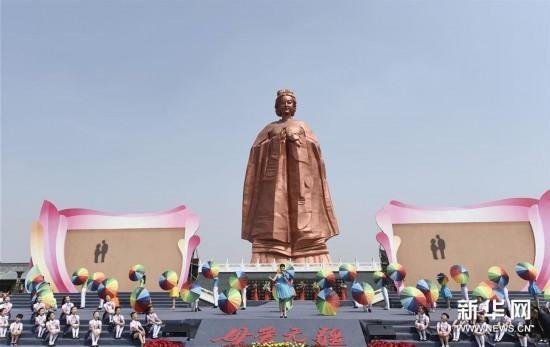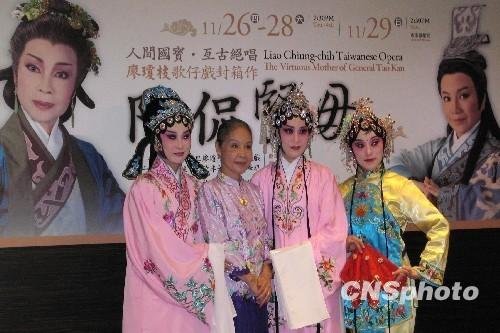
A sculpture of Ouyang Xiu's mother. [Xinhua]
In Chinese history, the so-called "Four great mothers" exerted a strong influence on their children with their high moral values during the Warring States Period (475–221 BC), Eastern Jin Dynasty (265–420) and Song Dynasty (960-1279).
As the saying goes, "The hand that rocks the cradle rules the world." It points to the important role mothers play in cultivating children.
The relationship between a mother and a child is intimate and natural; their moral value can affect a child's mind and can provide them with a new understanding of the world.
In history class, students often learn about many famous people from different fields who were strongly affected by their mothers.
Historically, there are many literary quotations about the mother of Mencius, the famous Chinese thinker and educator.
According to records, Mencius wanted to divorce his wife at the sight of her squatting down one day in her own room, with two feet open and her knees slightly bent. He was very much offended and told his mother about his intention to put his wife away because she violated the rite. Mencius' mother, however, refuted her son, saying, "It is you who violated the rite, and not your wife." "As the Book of Rites says, before a person enters a room, he should announce his imminent presence loudly to let others prepare for his arrival," his mother added, "but you entered the door of your wife's bedroom without raising your voice, and so caused your wife to be caught not sitting properly. The impropriety is with you and not with your wife."
On this Mencius rebuked himself, and did not put away his wife.
Mencius's mother's clear distinction between right and wrong largely helped her son’s growth. She has since become a model virtuous mother.
The historical figure of Zhan was the mother of Tao Kan (259-334), an eminent Eastern Jin general and governor. Tao's father passed away when he was young. Despite the poverty of the family, Tao's mother were well aware of the importance of education and supported the family by spinning and weaving. Also, she has passed down many virtuous literary quotation on family education.
Zhan cultivated integrity into her son. She never accepted any so-called gifts, not even a jar of fish. The way she held oneself to consistent moral and ethical standards deeply affected her son and family rules as such were handed down from generation to generation. It is the family circumstances into which Tao's great-grandson, the accomplished poet Tao Yuanming was born that shaped his character. Just as he himself put it, he would not "bow like a servant in return for five bushels of grain."
Another story concerns Ouyang Xiu, who was a great master of literature in the Song dynasty. When he was young, his family was too poor to buy a writing brush and paper.
His achievements can be largely attributed to his mother, Zheng, who persisted in supporting his son to study. Zheng even used grass stalks to write on the ground to teach him.
The last of the four great mothers was Yao, the mother of Yue Fei (1103 – 1142), a famous military general and national hero who lived during the Southern Song dynasty. Yao always educated her son to take responsibilities from an early age, with strict family education.
Yue joined the army when he was only 20. Later, he came back home to observe mourning for his father. However, the nomad invaders from the Jin dynasty invaded again, so Yue was determined to join the army again.
When asked about his plan, Yue said to his mother, "I'd want to join the army to guard our nation."
In order to inspire Yue, his mother tattooed his aspiration of being loyalty to serve the country on his back.
Shocked by the great fighting capacity of Yue's army, invaders once said that it was more difficult to defeat the Yue's army than move away a mountain.

An opening ceremony of the Mencius' Mother's Cultural Festival. [Women Voice]